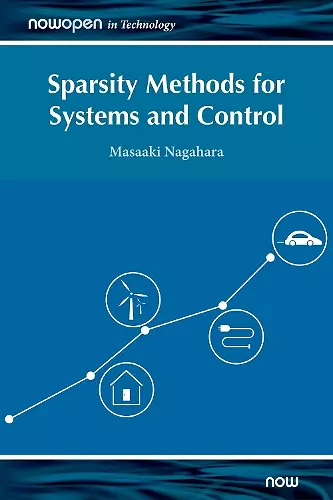Sparsity Methods for Systems and Control
Format:Hardback
Publisher:now publishers Inc
Published:30th Oct '20
Currently unavailable, and unfortunately no date known when it will be back

The method of sparsity has been attracting a lot of attention in the fields related not only to signal processing, machine learning, and statistics, but also systems and control. The method is known as compressed sensing, compressive sampling, sparse representation, or sparse modeling. More recently, the sparsity method has been applied to systems and control to design resource-aware control systems. This book gives a comprehensive guide to sparsity methods for systems and control, from standard sparsity methods in finite-dimensional vector spaces (Part I) to optimal control methods in infinite-dimensional function spaces (Part II).The primary objective of this book is to show how to use sparsity methods for several engineering problems. For this, the author provides MATLAB programs by which the reader can try sparsity methods for themselves. Readers will obtain a deep understanding of sparsity methods by running these MATLAB programs.
Sparsity Methods for Systems and Control is suitable for graduate level university courses, though it should also be comprehendible to undergraduate students who have a basic knowledge of linear algebra and elementary calculus. Also, especially part II of the book should appeal to professional researchers and engineers who are interested in applying sparsity methods to systems and control.
The writing style is live and easy to follow. In particular, I like very much the examples, problems, and Matlab simulations with actual code segments that are included in the first chapters. The proposal is timely and the topic of sparsity in control is very broad. In addition, to the systems and control community, I expect it will appeal to the machine learning community".- Ivan Markovsky, Vrije Universiteit Brussels, Belgium
"Definitely this book will be interesting to broad control, mathematics, and engineering communities. The author should definitely try to expand the book to include sparse control problems in their full generality".-Aleksandar Haber, The City University of New York, USA
ISBN: 9781680837247
Dimensions: unknown
Weight: 494g
220 pages